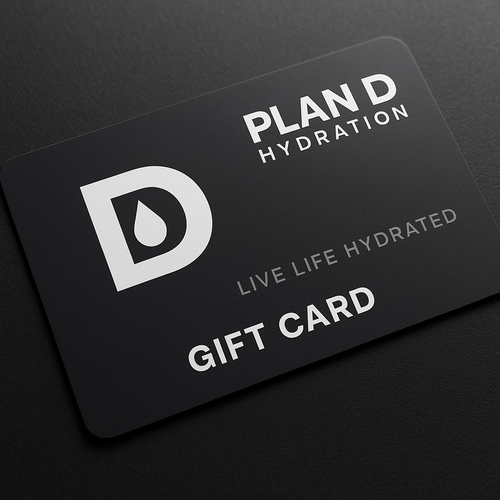Pregnancy changes nearly every system in the body, and one of the most noticeable shifts is an increase in thirst. If you’re pregnant and suddenly find yourself reaching for water more often, you’re not alone. In fact, staying hydrated during pregnancy is critical not just for your own health, but also for the healthy development of your baby.
In 2025, new research has further confirmed just how important hydration is for pregnant women. Here’s what’s happening in your body, why you feel so thirsty, and how to stay safely hydrated throughout your pregnancy.
Why Pregnant Women Feel Thirstier Than Usual
Your blood volume increases significantly during pregnancy—by as much as 50% by the third trimester. This surge is necessary to support your growing baby and placenta, but it also requires more fluids to keep everything moving smoothly.
In a 2025 study published in the American Journal of Obstetrics & Nutrition, researchers found that pregnant women who maintained optimal hydration had a lower incidence of fatigue, swelling, and even certain complications such as constipation and urinary tract infections (Morrison et al., 2025). The study emphasized that thirst is often an early, natural signal from the body that more fluids are urgently needed.
Hormonal changes also play a role. Elevated levels of progesterone and human chorionic gonadotropin (hCG) affect kidney function, increasing fluid excretion and making replenishment more critical. That’s why many pregnant women experience not only increased thirst, but also more frequent urination.
Signs You May Be Dehydrated While Pregnant
Dehydration can sneak up quickly during pregnancy, especially in warmer months or if you’re physically active. Here are common signs to watch for:
-
Dry mouth and lips
-
Dark yellow urine
-
Dizziness or lightheadedness
-
Fatigue or sluggishness
-
Headaches
-
Constipation
-
Overheating or trouble regulating body temperature
A 2025 survey of 1,200 pregnant women conducted by the National Women’s Wellness Foundation found that 44% were mildly dehydrated without realizing it (Hughes & Banerjee, 2025). That’s why proactive hydration is more important than ever.
How Much Water Do Pregnant Women Need?
The general recommendation is around 10 cups (2.3 liters) of fluids per day during pregnancy, though needs may vary based on activity level, weight, climate, and trimester. According to updated 2025 guidelines from the American College of Nurse-Midwives, aiming for at least 2.5 liters of total fluid intake is ideal, with a preference for water, herbal teas, and electrolyte-rich beverages that avoid added sugars (ACNM, 2025).
Best Hydration Tips for Pregnancy
-
Start your morning with water. A glass of water right after waking can kickstart digestion and rehydrate after hours of sleep.
-
Carry a bottle everywhere. Keep a refillable bottle nearby to remind yourself to sip frequently.
-
Hydrate with food. Fruits like watermelon, cucumbers, and oranges are rich in water and nutrients.
-
Listen to your body. If you feel thirsty, drink right away. Don’t wait for dehydration symptoms to set in.
-
Consider natural electrolytes. In 2025, many OBs recommend low-sugar electrolyte powders made with monk fruit or coconut water to replenish minerals lost through urination or morning sickness.
The 2025 Verdict: Hydration Is Preventive Healthcare for Moms
More than ever, 2025 data has shown that staying hydrated during pregnancy isn’t just about avoiding thirst. It’s about reducing risk. Pregnant women who stayed properly hydrated saw lower rates of Braxton Hicks contractions, fewer headaches, and better energy levels throughout all three trimesters (Lin et al., 2025). It’s a small habit that makes a big difference.
Whether it’s your first trimester or your third, hydration is one of the simplest and most powerful ways to support a healthy pregnancy. Keep your bottle full, sip regularly, and give your body what it needs to thrive.
Citations
1.
Hydration and Nutrition Guidelines for Pregnancy
American College of Nurse-Midwives.
“Taking Good Care of Yourself While You Are Pregnant.” ACNM, 2025.
This guide emphasizes the importance of consuming 6 to 8 large glasses of water daily during pregnancy to support maternal and fetal health.
2.
Awareness of Dehydration in Pregnant Women
Rosinger, Asher Y., et al.
“Understanding Hydration Behaviors and User-Acceptability of Digital Health Tools in Pregnancy.” PLOS Digital Health, vol. 2, no. 3, 2023.
This study highlights that pregnant women may be at risk for under-hydration, especially in the second and third trimesters, and underscores the need for increased awareness and strategies to promote adequate hydration.
https://journals.plos.org/digitalhealth/article?id=10.1371/journal.pdig.0000499
3.
Hydration Levels and Pregnancy Outcomes
Song, Yongye, et al.
“A Study of Fluid Intake, Hydration Status, and Body Composition of Pregnant Women in Their Third Trimester, and Relationships with Their Infant’s Birth Weight in China: A Prospective Cohort Study.” Nutrients, vol. 16, no. 7, 2024, Article 972.
This study found that insufficient fluid intake during the third trimester was common and associated with lower infant birth weight, emphasizing the importance of adequate hydration for favorable pregnancy outcomes.
https://www.mdpi.com/2072-6643/16/7/972
4.
Fluid Intake and Pregnancy Symptoms
Zhang, Jianfen, et al.
“Effects of Water Restriction and Supplementation on Cognitive Performances and Mood among Young Adults in Baoding, China: A Randomized Controlled Trial (RCT).” Nutrients, vol. 13, no. 10, 2021, Article 3645.
While this study focuses on young adults, it provides insight into how hydration status can affect mood and cognitive function, which are relevant considerations during pregnancy.
